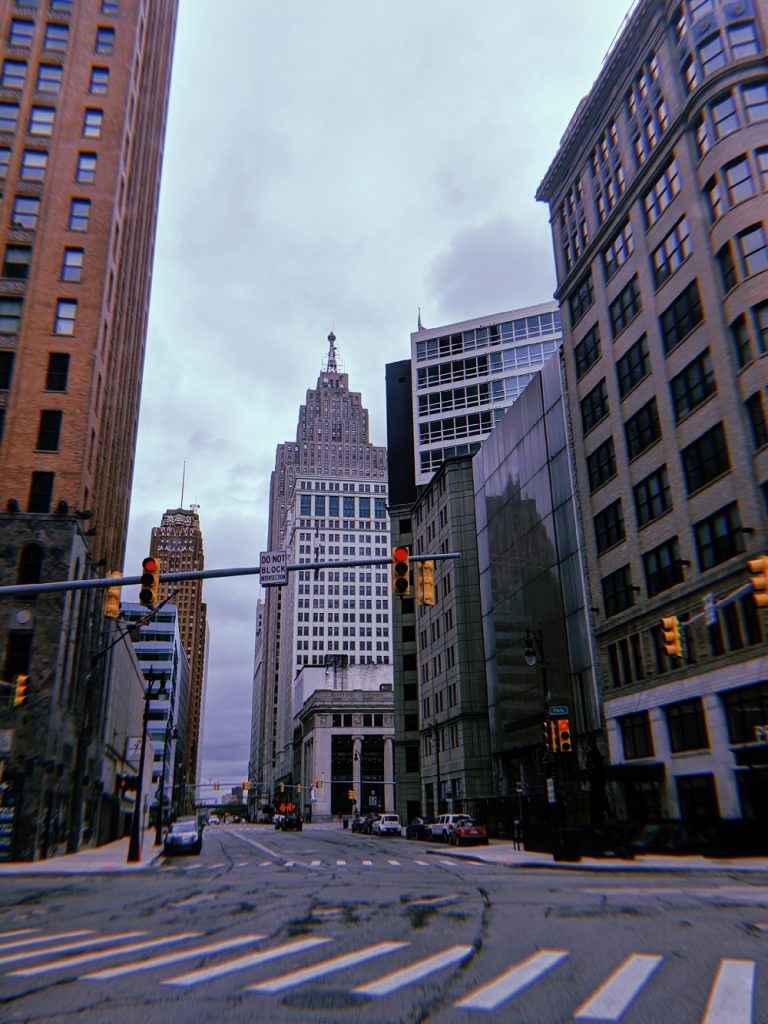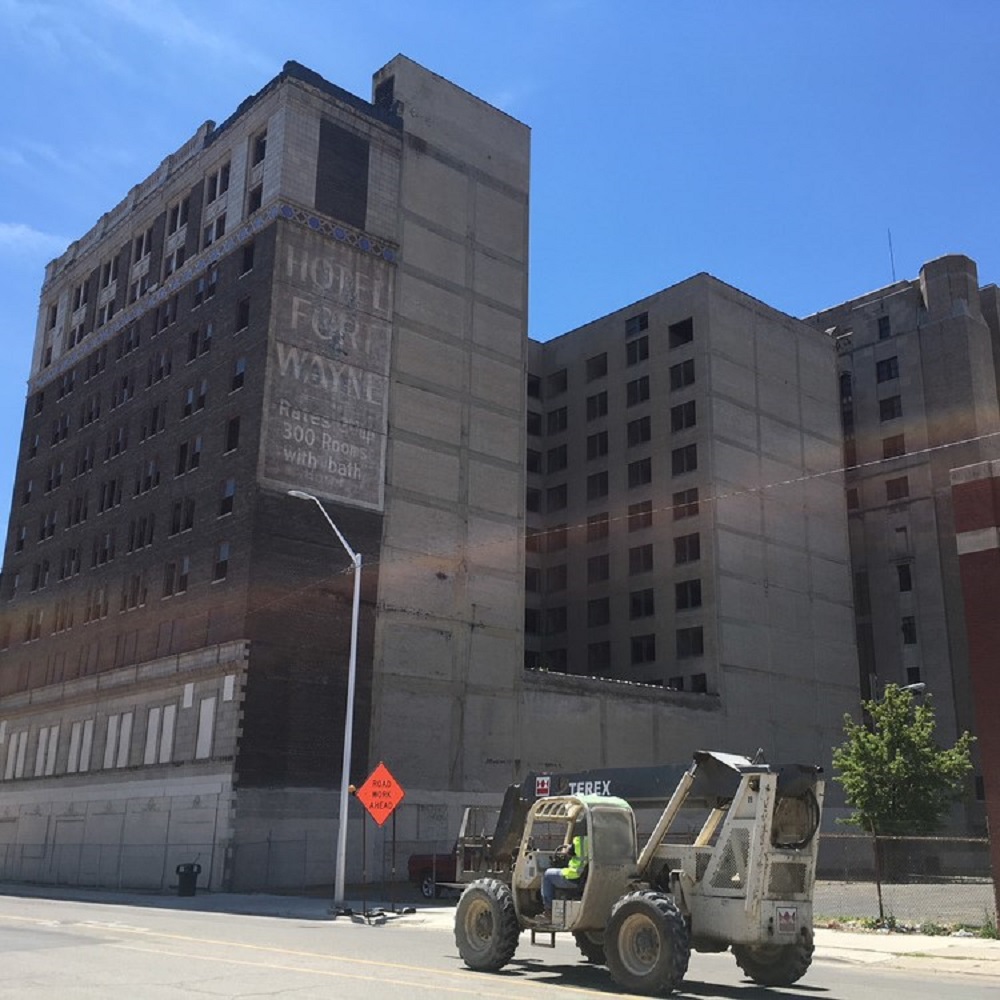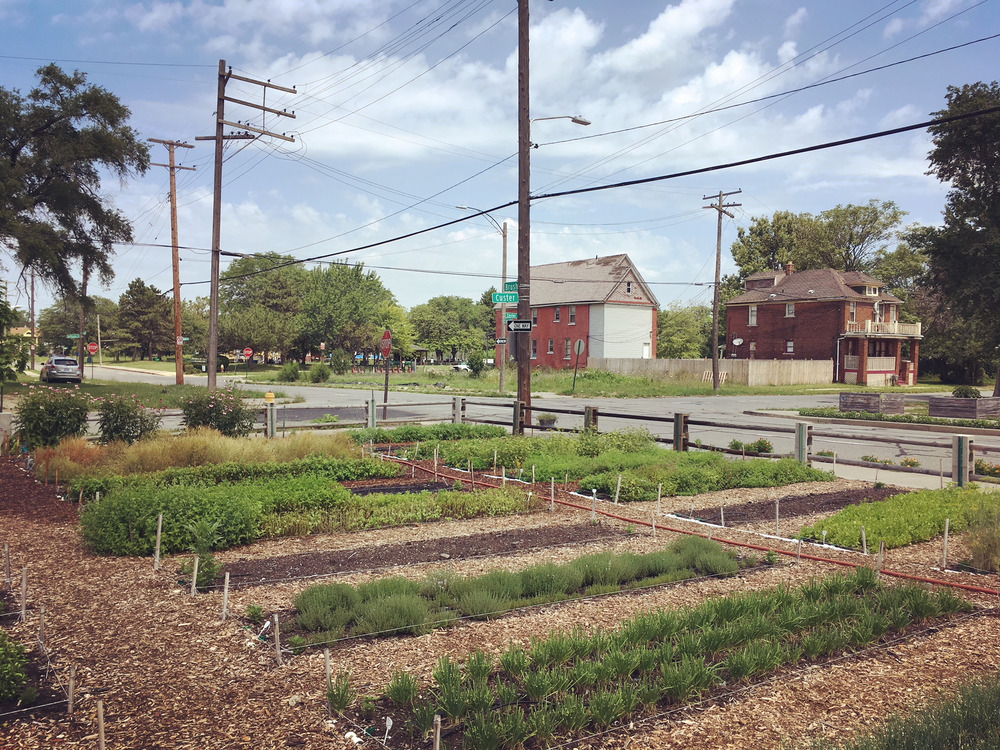Sara Miller
Those tender moments of cathartic house euphoria are what Sara Miller strives for, as the Irish-born DJ and producer conducts…
CONTACT
Maureen Noe, Zoe Stroebel-Haft
residencies@musicboard.berlin.de
T +49 (0)30 221 84 89 88
The dance floor as a safer space: from Motown to Detroit Techno, the Motor City is the birthplace of numerous musical genres that are breathing the spirit of political resistance. Detroit and Berlin are linked by a close musical history. Experience the origins of techno and house as Black, queer music cultures!
Musicboard Berlin in cooperation with the Detroit-Berlin Connection is granting an international, two-part co-creation residency to solo musicians from the field of electronic music who are living in Berlin and Detroit. Berlin musicians can apply via Musicboard for a stay of up to two months in Detroit. Through the Detroit-Berlin Connection, a musician from Detroit is selected for a stay of up to two months in Berlin. Both musicians will be consulted about the selection of the respective artistic partner.
The aim of the co-creation residency is to foster exceptional collaborations and long-term artistic and cultural exchange between musicians living in Detroit and those living in Berlin. Further, the residency project intends to raise awareness for the origins of techno and house as Black, queer music cultures. In addition to the intended artistic collaboration, the residents serve as a point of reference and contact for their partners, connecting them with the respective local creative scenes and artistic networks.
The Musicboard residency programme intends to be accessible to everyone and as inclusive as possible. Nevertheless, this residency cannot be taken up with family. If you have questions about the accessibility of this residency, please contact Maureen Noe before applying: maureen.noe@musicboard.berlin.de.
Eligible to apply are:
Stay in Detroit: 6 to 8 weeks around May 2025
Stay in Berlin: 6 to 8 weeks around August 2025
The exact periods of the residency will be coordinated between the cooperation partners and the selected musicians.
As the birthplace of techno, Detroit has been closely connected to the Berlin techno scene since the 1990s. Particularly in the US, but also in Berlin, house and techno music was significantly developed by Black and queer communities who established clubs and dance floors as safer spaces and sites of resistance against discrimination and political repression. The residency programme aims to promote an engagement with the origins of electronic music culture and create more visibility and recognition for the role of queer and BIPoC communities that continue to fundamentally shape the development of these genres.
The Detroit residency usually takes place during Movement Electronic Music Festival, one of the longest-running dance music events in the world. In Detroit, the Musicboard residents live and work in the premises that are home to the legendary techno label and DJ collective Underground Resistance, the younger Detroit Techno Militia collective, and in-house record store Submerge. The residents will be given access to a studio space to develop own and collaborative works as well as engage with the community. Co-creation is seen as an open-ended process that can be shaped in many ways. It is not mandatory that joint musical works are created.
To continue the transcultural collaboration, Musicboard Berlin subsequently will invite the artist from Detroit for a residency in Berlin. A live presentation of the joint production at Pop-Kultur Festival in Berlin in August 2025 is desired.
The Musicboard covers:
The following information and documents must be supplied, in German or in English, using exclusively the online application tool that can be accessed via the button at the end of this page:
In each round of funding, applicants may apply for more than one residency. In this case, separate applications must be submitted.
Only fully completed documents can be considered. All applications will be handled confidentially and used exclusively for decision-making and funding purposes. Publication of certain relevant details is granted by the applicant as part of the application process.
The residencies are awarded through Musicboard Berlin GmbH upon recommendation of an independent jury of Berlin-based pop experts and in consultation with the Senate Department for Culture and Social Cohesion. Jury members are usually appointed for a period of three years. The following jury is appointed to the Scholarships & Residencies programme in 2024:
A short description of the jury members is available here.
We’ve collected here some frequently asked questions about Musicboard’s residencies. This information is intended for general advice, is not legally binding, and does not take the place of an examination of individual circumstances. We will gladly answer further, detailed questions on the funding programme by phone or by email. Please read the FAQs and other explanatory notes on this website carefully before contacting us. We also recommend the free services of the Kulturförderberatung by Kreativ Kultur Berlin, which supports artists in all disciplines in their search for possible funding, can offer tips for preparing applications and can provide review of applications.
The current application period has ended. Information on the application for 2026 will be published next year.


